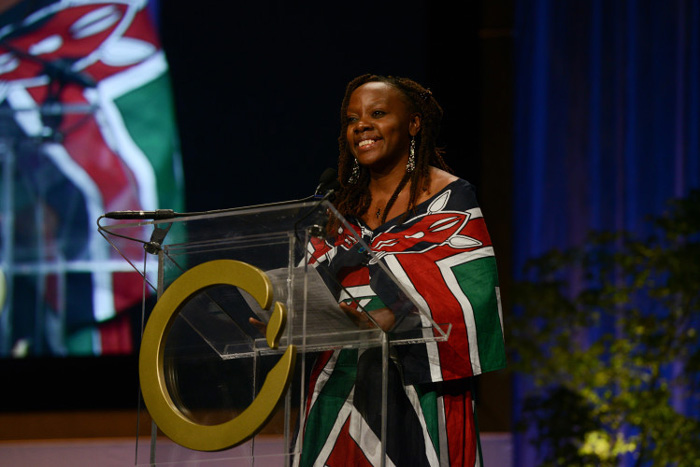
There is nothing more natural than a mother breastfeeding her baby. When the nexus of the “back to the earth” and “get in touch with nature” philosophies crisscrossed with the nascent ecological movement and the first Earth Day in the 1970’s, breastfeeding made a comeback in the America.
When my son was born twenty-one years ago, I was eager to breastfeed him. I understood that my health impacted his health. Years later, I still feel I created an amazing bond.
Women disproportionately bear the brunt of climate change. They understand the challenges of food and water security and extreme weather, and how it affects the health and safety of their children.
Perhaps that was one of the reasons I was so moved by the actions and courage of Phyllis Omido, one of this year’s Goldman Environmental Prize Recipients. Omido was recognized for her activism on the ground in Kenya, Africa. After her baby became sick, Omido learned that her breast milk was at the root of the problem. Why? There was a factory sited close to her neighborhood that employed local residents — while surreptitiously emitting high levels of lead at night. The plant was also dumping unpurified wastewater, which ended up in the local streams essential to all daily routines of life. Expectant mothers were experiencing miscarriages and stillbirths at uncommonly high numbers.
As a pro-active mother, Omido galvanized her community to report the illnesses suffered by their children. She founded The Center for Justice Governance & Environmental Action (CJGEA), and pushed her government to test for lead. One sick child was found to have twenty times higher the amount of lead in his blood than a child in America.
Under Omido’s leadership, CJGEA is using a human rights lens to tackle the problems that have been accompanying rapid industrialization in Kenya. Omido was arrested, spent time in jail, and weathered threats — as well as an actual physical attack. Yet, as a mother, she did what she needed to do to protect her young son. She got the poisoning plant shut down.
Omido is an example of the growing numbers of women who are making a difference globally, on the ground, to shift the environmental equation.
Whether it’s a mother in Kenya reacting to the poisoning of her breast milk, or a mother in the Bronx concerned that 20 percent of the area’s children have asthma — the dots are connected. The fight for environmental justice must be more “gender responsive.”
As COP21 makes climate change the center stage of global action, there are legions of high profile women (including our Moms Clean Air Force delegation) advocating for the nexus of gender, children, and environmental justice. The definitive linkages will be heard around the world — especially with women like Phyllis Omido leading the cause.




